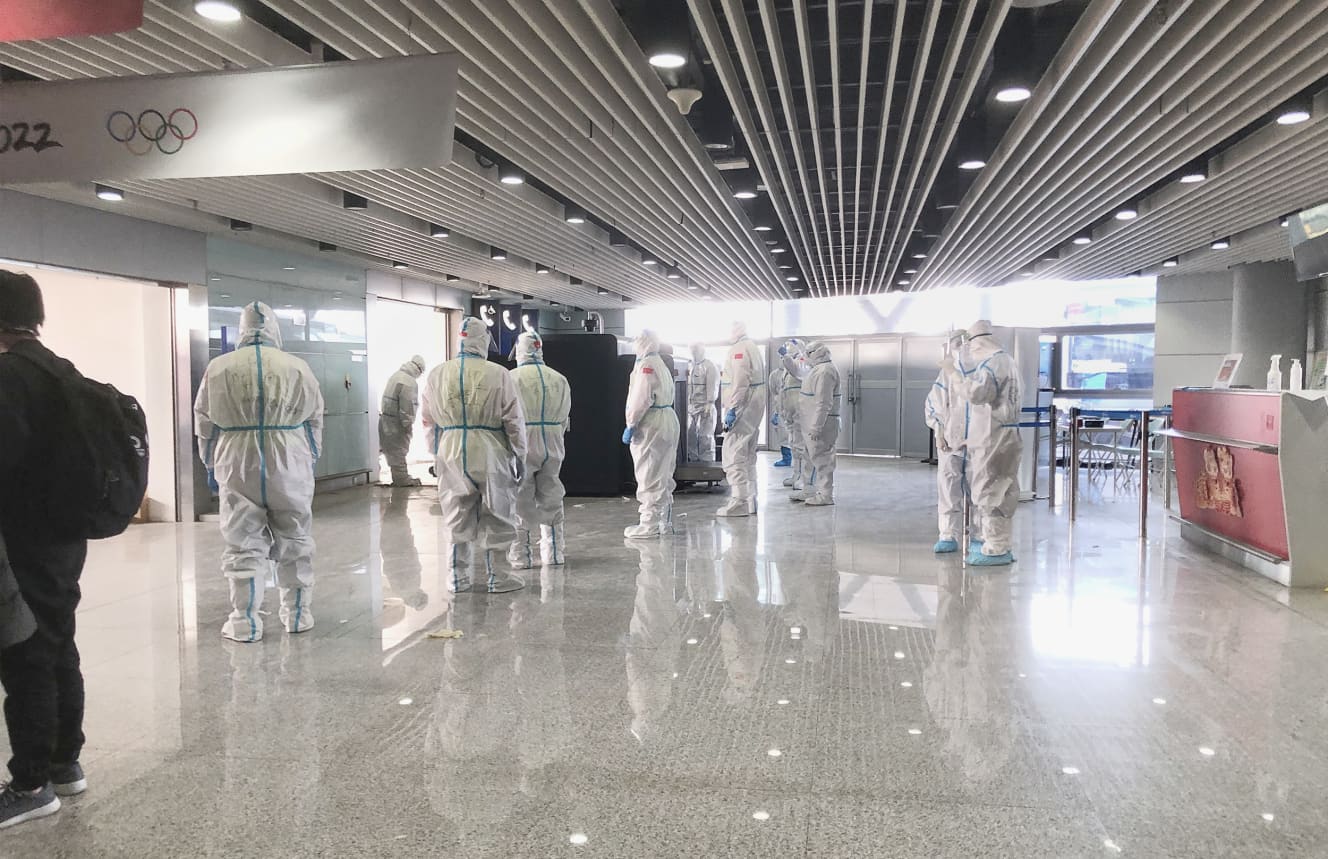A special correspondent saw it! Covid-19 disaster forces Beijing Olympics to be held “behind the scenes
The FRIDAY correspondent saw it! Before departure, PCR tests are conducted at a designated, mysterious clinic. All Beijing airport staff wear protective suits, and the hotels are monitored 24 hours a day by strong security guards.

Stay there!
(Stay there!),” said an airport staff member to our correspondent O (35) when he arrived at Beijing Capital International Airport on January 31. At the Beijing airport, not only the staff, but also the security guards and cleaning staff wear full-body protective clothing. Even so, the airport staff was very strict, as if they were trying to avoid any contact with me.
The Beijing Winter Olympics, which will open on February 4, will be the second Olympics to be held under the Covid-19 disaster. This correspondent decided to go, overcoming the concerns of those around her that she would be detained if she stepped outside the designated area, and that all her information would be stolen if she entered the app.
When entering China, Olympic officials are exempted from local quarantine. Instead, they will be required to install the app “My2022” and submit a vaccination certificate and two negative PCR tests before entering the country. If they clear all these requirements, they will be allowed to leave the country. Once they have completed all of these requirements, they will be issued a QR code to be used when entering and exiting the country.
The PCR test is available only at medical institutions designated by the Chinese embassy. The PCR test is available only at medical institutions designated by the Chinese Embassy, not at university hospitals, but at small clinics in front of Shinjuku and Ebisu stations. Some people are saying that the selection of medical institutions is inexplicable,” said a director of a commercial TV station.
Three days and two days before my departure, I also had PCR tests done at a clinic in a crowded building in Tokyo. The total cost for the two tests was about 32,000 yen. The name of the reporter on the test kit was wrong, which made me feel a bit uneasy.
When I arrived at the Beijing airport on January 31, I was surprised to see all the officials in protective clothing. However, I was not asked to confirm my QR code, which I was told I needed to present when entering the country. I couldn’t decide if they were being sloppy or if they were sharing all the information from the app with the immigration system. After the PCR inspection at the airport, we took a special bus to the hotel.
As in the case of the Tokyo Olympics, the ‘bubble system’ has been adopted for this event, but it has become much stricter. Olympic officials are not allowed to go to any place other than their hotel, the stadium, and the media center, and they must take a special bus to get there and back. During the Tokyo Olympics, many officials used public transportation or went into the city. But this time, the area around the hotel and stadium is blocked by walls and fences, making it almost impossible to go outside the bubble.
There is a gate in front of the hotel, which is only opened when special buses and other vehicles enter and exit. There are strong security guards waiting in front of it. I was told that the gate is guarded 24 hours a day. While I was taking pictures around the gate, I was asked, “What do you want? I was asked.
This Winter Olympics is a national project. I could feel the “seriousness” of China’s determination to hold the Olympics.

From “FRIDAY” February 18, 2022 issue